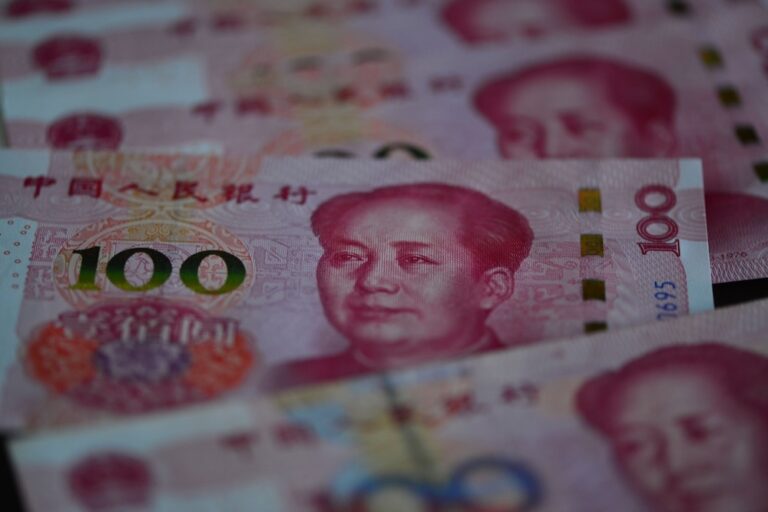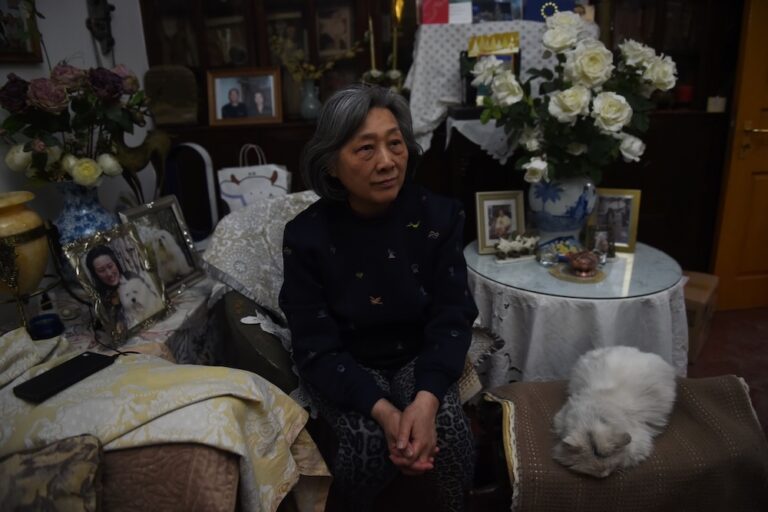(HKJA/IFEX) – On 10 February 1998, the HKJA launched a new campaign for open government by calling on the government to start work on a Freedom of Information Ordinance. It called on the government to publish a consultation document within six months, outlining different approaches to freedom of information legislation to allow a public debate. […]
(HKJA/IFEX) – On 10 February 1998, the HKJA launched a new campaign for open
government by calling on the government to start work on a Freedom of
Information Ordinance. It called on the government to publish a consultation
document within six months, outlining different approaches to freedom of
information legislation to allow a public debate. It called on Chief
Executive Tung Chee-hwa to make a public commitment to present legislation
to Legco in 1999. It demanded that the legislation should put the final
decision on whether information is released in the hands of the courts – not
a civil servant.
The HKJA also demanded that the government allow public and media access to
the many advisory committees that are at present held behind closed doors
but which play an important role in formulating government policies.
A survey of HKJA members showed that 69 per cent believed the government was
now less open than before the handover. The Chief Executive’s office came
under heavy criticism, with 80 per cent of those expressing an opinion
saying it was either “not very
open” or “not at all open”. Asked about ways to improve government openness,
72 per cent said legislation was needed.
The HKJA has conducted the first survey of the government’s Code on Access
to Information, which does not have the force of law, and which is further
evidence that reform is needed.
A total of 81 documents were requested under the Code on Access to
Information, carefully selected to give a representative result. Only 35 per
cent were available in full. Nine per cent were withheld in part and 25 per
cent were withheld in full, all citing reasons provided under the Code.
Thirty-two per cent were not available for other reasons.
HKJA Chairperson Carol Lai Pui-yee said: “In an attempt to disrupt this
survey, the Home Affairs Branch told all departments to work extra hard on
these requests to try and create a false image of openness. And yet the
number of documents available in full was just 35 per cent. If an ordinary
member of the public was to make these requests the result would be even
worse. It is now time to admit the government’s existing system has failed
and start legislating.”
Documents refused in the survey included:
authority
Chau
support
services and other non-controversial, ordinary reports and studies.
Ms Lai said: “There is no way that these documents should be treated as top
secret. These are ordinary documents that have been produced using
taxpayers’ money. Pressure groups or others trying to challenge government
policy have little chance if the government holds all the information.”
*****************************************************************************
REPORT ON SURVEY OF CODE ON ACCESS TO INFORMATION
SUMMARY
A total of 81 documents were selected from the Hong Kong Government’s 1997
Progress Report and requested under the Code on Access to Information by a
researcher using their own
home address without notification that this was a HKJA survey. Only 28 of
them were offered in full – a success rate of just 35 per cent.
A total of 26 were withheld because they were not yet complete or could not
be found. In some cases, departments claimed they could not find documents
even though they were
clearly stated to be produced and complete in the Progress Report. A total
of 27 documents were refused in whole or part for various reasons under the
Code – a rejection rate of 33 per cent.
In one notable case, the Chief Secretary’s Office implied documents were
available and asked for photocopying fees exceeding $700. In fact, they
intended to refuse some documents and
also remove parts of others – a fact that would only become clear after the
charges were paid.
In a clear attempt to disrupt the survey, the Home Affairs Bureau instructed
departments to do their best to make the figures in the survey appear as
good as they could. Without this interference, the refusal rate could have
been even higher.
BACKGROUND
The survey attempts, for the first time, to measure the effectiveness of the
government’s Code on Access to Information. The code was first introduced in
April 1995 and extended to the whole government by the end of 1996. It is an
administrative code, not a law. Those who feel they have
been unfairly denied information can complain to the Ombudsman. However, the
Ombudsman has no power to force the government to release information even
if he finds the Code has been broken.
METHOD
Using the 1997 Progress Report issued in October 1997, every major study
that was completed in the last year was requested. Where a group or
committee had been set up to make a special investigation, the working
papers of that group were requested. None of the requests covered obviously
sensitive subjects such as relations with Beijing or security issues or
involved requesting personal information or individuals.
Requests were lodged in the first few days of November 1997 by fax. A total
of 56 faxes, requesting 81 documents, were sent. Where necessary, extra
faxes were sent seeking clarification.
In a small number of cases appeals were lodged against refusal when replies
were clearly unsatisfactory. It took about two months before the final
government department finished its work.
RESULTS
Documents requested: 81
Documents offered in full: 28 (35%)
Documents partially withheld: 7 (9%)
Document completely withheld: 20 (25%)
Documents not available for other reasons, such as incomplete: 26 (32%)
(Figures do not add to 100% because of rounding).
The high level of records not available for other reasons is largely because
departments said they were unable to find the report or said the report was
not finished – even though the Progress Report written two months earlier
had in some cases clearly indicated the data was available.
There are more than 30 possible reasons for refusing information under the Code.
The most common reasons for refusal were:
“Information which will soon be published, or whose disclosure would be
premature in relation to a planned announcement or publication. (11
refusals)
“Information relating to incomplete analysis, research or statistics, where
disclosure could be misleading or deprive the department or any other person
of priority of publication or commercial value.” (9 refusals)
“Information whose disclosure would inhibit the frankness and candor of
discussion within the government, and advice given to the government.” (7
refusals)
Only one request came close to sensitive issues of sovereignty. One paper
relating to the Asian Productivity Organization, from which Hong Kong has
withdrawn because Taiwan is a member, had two paragraphs removed on the
grounds it was “Information received in confidence from and conveyed in
confidence to other governments, courts in other jurisdictions, and
international organizations.”
Some of the most helpful replies came from the Hong Kong Police, which sent
a 50 page report in less than week without requesting any photocopying fee.
The Buildings Department was also very helpful. Even though their report was
not yet available, they said, available they undertook to send it later.
Also helpful were Environmental Protection Department.
In contrast, most departments who said their information was not yet
complete made no attempt to say when it would be ready.
The most misleading answer was that by the Chief Secretary’s Office, which
requested $770.20 in photocopying charges before releasing a series
documents. The demand for cash, however, failed to reveal that when the
$770.20 was paid the documents sent back would have large sections removed
and in some cases be missing altogether. Only a second letter asking for a
clear statement of whether any information had been withheld got the office
to admit that large sections were not available.
HE GOVERNMENT’S ATTEMPT TO “KILL THE STORY”
By the middle of November 1997 the Home Affairs Bureau realized that the
survey was being carried out. It wrongly believed it was being carried out
for a newspaper. A memo was circulated
to more than 100 senior civil servants across the government saying “In the
nature of things, good news is no news and we can kill the story – or at
least reduce its impact – if we all do well”.
It is ironic that the Home Affairs Bureau, which is supposed to be in charge
of the Code on Access to Information, refused to release a full copy of this
memo despite a request under the Code and an appeal. It was only by exerting
direct pressure on the Secretary for Home Affairs, appealing to the
Ombudsman and threatening action under the Personal Data (Privacy) Ordinance
that the memo was issued in full.
The HKJA has already strongly criticized this attempt to give false
impression of the its openness. It does not accept the explanation given by
the Secretary for Home Affairs.
It should be borne in mind, that if pressure group, political party or
ordinary member of the public were to request these documents they might
find their success rate even lower than the 35% discovered here.
******************************************************************************
FINAL REPORT ON QUESTIONNAIRE ON FREEDOM OF INFORMATION
Number of Questionnaires we sent out : 800 copies
Number of Questionnaires we received: 90 copies
What is your opinion of the openness of the HKSAR government to media
compared to before the handover?
(0) Much more open (3) More open (25) Same as before (47) Less open (15)
Much less open (0) No opinion
What is your opinion of the attitude of the Chief Executive’s Office towards
the media?
(0) Very open (6) Quite open (10) Neutral (52) Not very open (14) Not at all
open
(8) No opinion
What about the rest of the government?
(0) Very open (8) Quite open (27) Neutral (47) Not very open (3) Not at all open
(4) No opinion, one form was blank
How frequently do government departments reject, at least initially, your
request for help or information?
(6) Very often (21) Quite often (36) Sometimes (11) Very rarely (1) Never
(10) Can’t remember/don’t know, 5 forms had no response
Is there one government department or body which is particularly secretive
or unhelpful?
(45) Yes (27) No (5) No opinion/don’t know, 13 forms were blank
The HKJA is considering running a campaign for open government. Do you think
this is a good idea?
(79) Yes (4) No (5) No opinion, two forms were blank
If the HKJA ran such a campaign, what should it demand? (Tick as many as
you want)
(65) A Freedom of Information Ordinance
(49) Better training for civil servants in dealing with the public and the
media
(55) An opening up of many government committees and advisory bodies that
are at present not open to the media
(49) Practical help from the HKJA to working journalists who are faced with
difficulties getting information by producing a reference pack.
( ) Other (please specify)
8) Please indicate roughly the main type of work you do?
(38) News reporter
(13) Sub-editor
(9) News editors/assignment editor
(0) Researcher
(13) Columnist or other writer not engaged in news reporting (16) Others,
one form was blank
In written comments:
A number of departments came in for particular criticism. The Office of the
Chief Executive and
Security Branch were criticized the most, while PPRB was criticized for
withholding too much personal information. Departments dealing with the
recent H5N1 outbreak were also
criticized.
Among those who said the campaign was a bad idea, the most common reason was
that it was an
inappropriate job for a journalists’ union. A small number supported the
campaign but said meetings and seminars with senior officials were more
productive than a law, that could be abused. Among the large majority
supporting the campaign, some said open government was an important part of
a modern society.
For further information, contact Kin-ming Liu at the Hong Kong Journalists
Association, Flat A, 15/F, Henta Commercial Bldg., 348-350 Lockhart Road,
Wanchai, Hong Kong,


